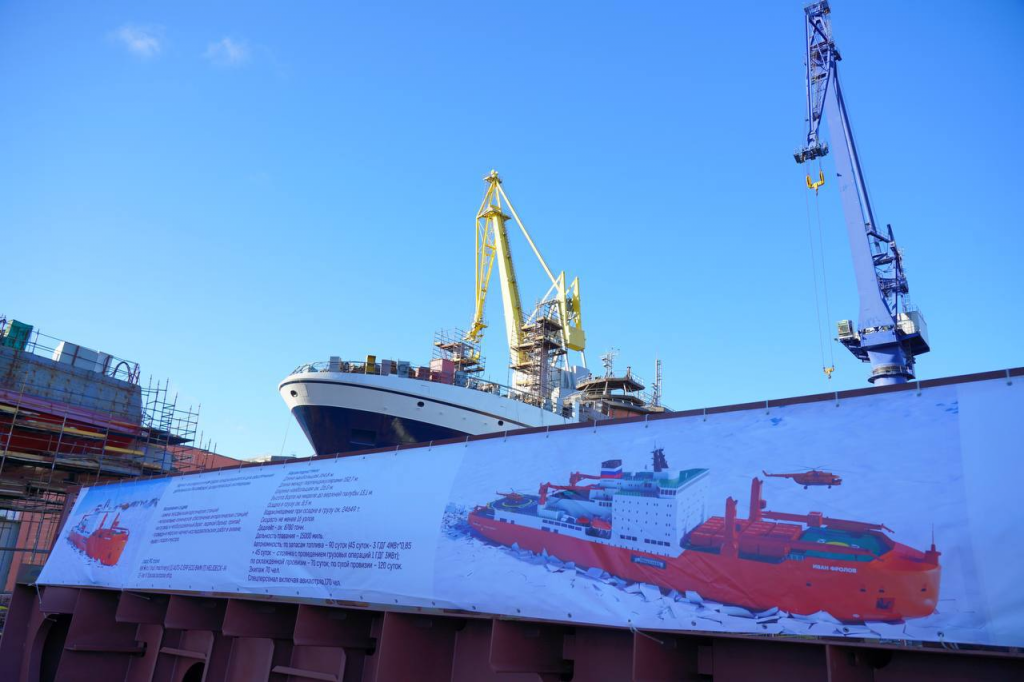Construction begins on a “new flagship of Russian polar research”

On 29 October, an official ceremony was held at the Admiralty shipyards in St Petersburg to start the construction of a new scientific vessel named Ivan Frolov, the Russian Arctic and Antarctic Research Institute reported.
The vessel – with a length of 165 meters and displacement about 25,000 tons – is planned to be able to accommodate up to 240 people.
As well as the announced 20 scientific laboratories on board, it will also have a helicopter platform.
“In 2028, the vessel will join the fleet of the Arctic and Antarctic Research Institute and become the new flagship of Russian polar science,” the news report says.

At the ceremony, the Deputy Prime Minister of Russia Dmitry Patrushev underlined, that the new vessel is aimed at strengthening Russia’s positions in the polar regions:
“The vessel will have powerful scientific equipment that will allow conducting research even in the harshest conditions, including research on the ocean floor, in the atmosphere and space,” – Patrushev is quoted as saying – “The study of the Arctic and Antarctic is one of the key areas of activity of the Russian Environmental Monitoring Service [Rosgidromet]. More than 20 expeditions are already carried out annually. They allow tracking climate change, collecting data for the development of navigation of the Northern Sea Route and clarifying the boundaries of the continental shelf of Russia”.
The Governor of St Petersburg, Alexander Beglov, called the new ship “the largest scientific research vessel in the world”. This could be true as, for example, the two well-known large scientific ships such as RV Kronprins Haakon (Norway) or RRS Sir David Attenborough (UK), are smaller than the new Russian vessel.
The technology used in the construction has previously been tested at the floating Arctic research station “North Pole” [ “Severny Polyus”], according to the head of the Arctic and Antarctic Research Institute Alexander Makarov.
Related stories from around the North:
Canada: Canada, U.S. and Finland form pact to build icebreakers for Arctic, CBC News
Norway: LNG-reloading operations end in Norway’s Arctic waters, The Independent Barents Observer
Norway: Hybrid-powered electric cruise ship navigates Northwest Passage, CBC News
Russia: New U.S sanctions take aim at Russian Arctic shipping, The Independent Barents Observer



